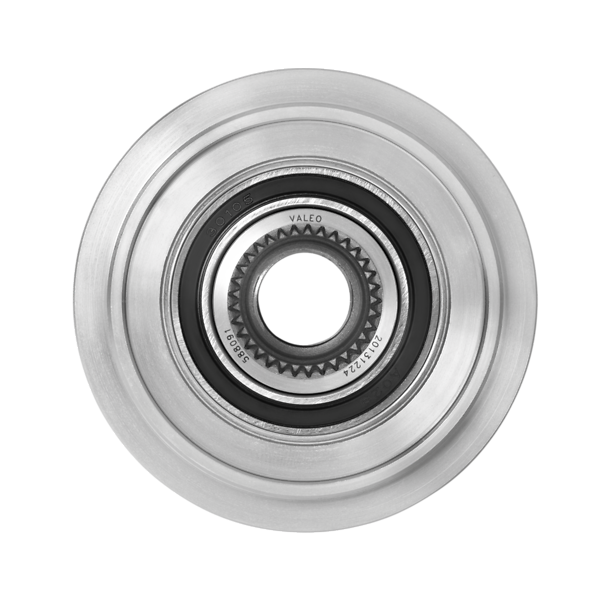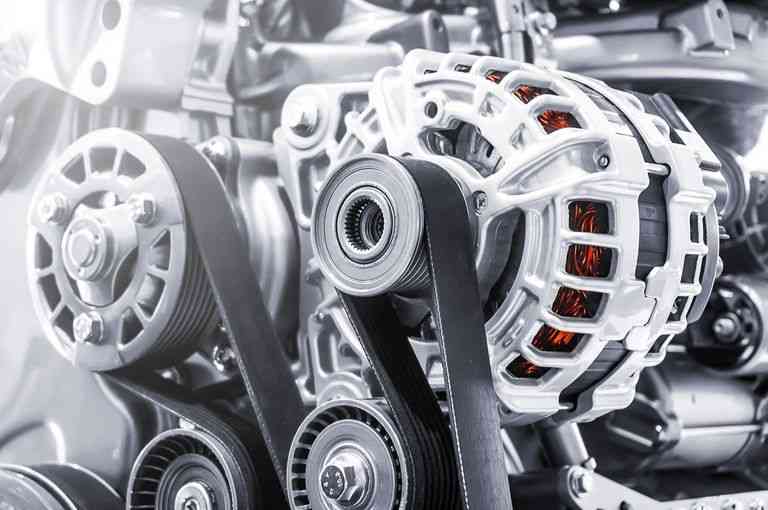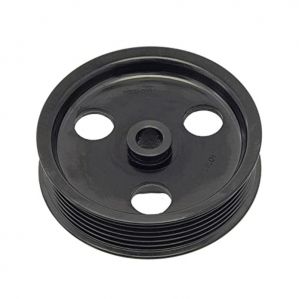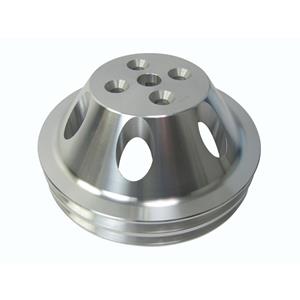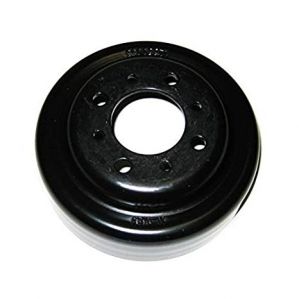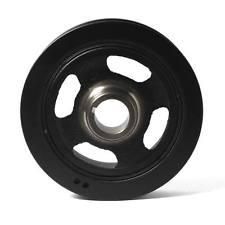Product Description
|
Description |
Auto car parts Timing belt tensioner pulley for BMW M54 M52 M50 E60 E46 E53 E39 E38 OE |
| OEM Number | 11281748131 |
| Brand | Frey |
| Application | M54 M52 M50 E60 E46 E53 E39 E38 |
| Market Type | Aftermarket |
| Price Term | EXW, FOB HangZhou/HangZhou |
| Payment | T/T, Paypal, West Union, L/C, Cash, etc |
| Quality | Produced according to the OE Parts |
| Certificate | TUV, SGS |
| Packing | Frey Brand, Customer Brand, Neutral Packing |
| Delivery Time | 5-15 days if in stock |
| Export Areas | South America, Europe, Amercia, Asia, Africa |
Frey, since 2004, is a Supply Chain Management Co, Ltd.For automotive after-market integrating R8D, operation, sales,
service,import and export trade of automo-bile parts. Our core products focus on serving the CHINAMFG brand such as
Mer-cedes Benz and BMW And we are a brand supplier with the most complete SkU in automotive aftermar-ket in China.ln China, CHINAMFG has morethan 150 agency outlets, and the sales of prod-ucts have covered more than 110 countries and regions around theworld, basicallyrealizing the sales network all over the world.As a wel-known global auto partsbrand,Frey has a global supply intelligence distribution centers in HangZhoucover-ing a total area of 15000 square meters. in the digital modern industrial system, through the introduction of perfect ware-housing and logistics system and SAPintelligent management system, CHINAMFG prod-ucts are more rigorous and meticulous in the production and operation.warehousingmanagement,accurate distribution and other series of operation processes.
In the past 17 years, CHINAMFG Brand has always adhered to independent researchand development,with technologyas the driving force and products as the core.Soevery year, more than 800 new products are introduced, with atotal of more than15000 products. The products produced by CHINAMFG Brand have successfully passed the SO 9001quality management systemcertification by TUV South Germany group.
/* March 10, 2571 17:59:20 */!function(){function s(e,r){var a,o={};try{e&&e.split(",").forEach(function(e,t){e&&(a=e.match(/(.*?):(.*)$/))&&1
| After-sales Service: | 12 Months |
|---|---|
| Warranty: | 12 Months |
| Type: | Standard |
.shipping-cost-tm .tm-status-off{background: none;padding:0;color: #1470cc}
|
Shipping Cost:
Estimated freight per unit. |
about shipping cost and estimated delivery time. |
|---|
| Payment Method: |
|
|---|---|
|
Initial Payment Full Payment |
| Currency: | US$ |
|---|
| Return&refunds: | You can apply for a refund up to 30 days after receipt of the products. |
|---|
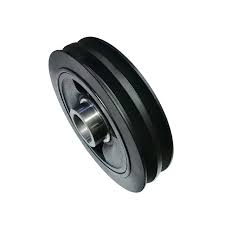
How do car pulleys play a role in the overall reliability and longevity of a car's engine?
Car pulleys play a significant role in the overall reliability and longevity of a car's engine. Their proper functioning and maintenance contribute to the smooth operation of various engine components. Here's a detailed explanation of how car pulleys impact the reliability and longevity of a car's engine:
Accessory Drive System:
The car pulleys are an integral part of the accessory drive system in an engine. They are responsible for transferring rotational power from the engine's crankshaft to various accessories such as the alternator, power steering pump, air conditioning compressor, water pump, and more. The reliability and longevity of these accessories are closely tied to the performance of the car pulleys. If the pulleys fail or operate inefficiently, it can lead to the malfunction or inadequate performance of these accessories, potentially causing engine issues and reduced reliability.
Belt Tension and Alignment:
Proper tension and alignment of the belts connected to the car pulleys are crucial for reliable engine operation. If the pulleys are misaligned or the belt tension is incorrect, it can result in belt slippage, increased wear, and reduced power transmission efficiency. Slipping belts can cause the accessories to underperform or fail, leading to problems like insufficient charging (alternator), difficulty in steering (power steering pump), inadequate cooling (water pump), or poor cabin comfort (air conditioning compressor). Over time, these issues can put additional strain on the engine and potentially lead to premature component wear or failure.
Pulley Bearing Health:
The pulleys in the engine incorporate bearings that allow smooth rotation. The health of these bearings is crucial for the reliability and longevity of the engine. Worn-out or damaged pulley bearings can result in increased friction, noise, vibration, and potential pulley failure. If the bearings fail completely, it can lead to a seized pulley, causing the belt to stop rotating and resulting in the malfunction of the associated accessories. The lack of proper lubrication, exposure to contaminants, or general wear and tear can all contribute to bearing degradation. Regular inspection and maintenance of the pulley bearings can help identify and address issues early, promoting engine reliability and longevity.
Efficiency and Performance:
An efficient and well-maintained car pulley system contributes to the overall efficiency and performance of the engine. When the pulleys operate smoothly, transmit power effectively, and maintain proper belt tension, the engine's accessories can function optimally. This ensures that the engine operates under ideal conditions, reducing unnecessary strain and minimizing the risk of premature wear or component failure. Additionally, an efficient pulley system can also contribute to better fuel efficiency, as it requires less engine power to drive the accessories.
Preventive Maintenance:
Regular preventive maintenance, including inspection, cleaning, and lubrication of the car pulleys, is essential for ensuring their reliability and longevity. This maintenance helps identify any misalignment, belt tension issues, or bearing problems early on, allowing for timely repairs or replacements. By addressing potential pulley-related issues promptly, the risk of more significant engine problems and subsequent damage can be minimized, contributing to the overall reliability and longevity of the engine.
In summary, car pulleys play a vital role in the overall reliability and longevity of a car's engine. Their proper functioning, correct belt tension, alignment, and healthy pulley bearings contribute to the smooth operation of engine accessories and minimize unnecessary strain. Regular maintenance and timely repairs or replacements of pulley-related issues are essential to ensure the engine operates optimally, reducing the risk of premature component wear or failure.
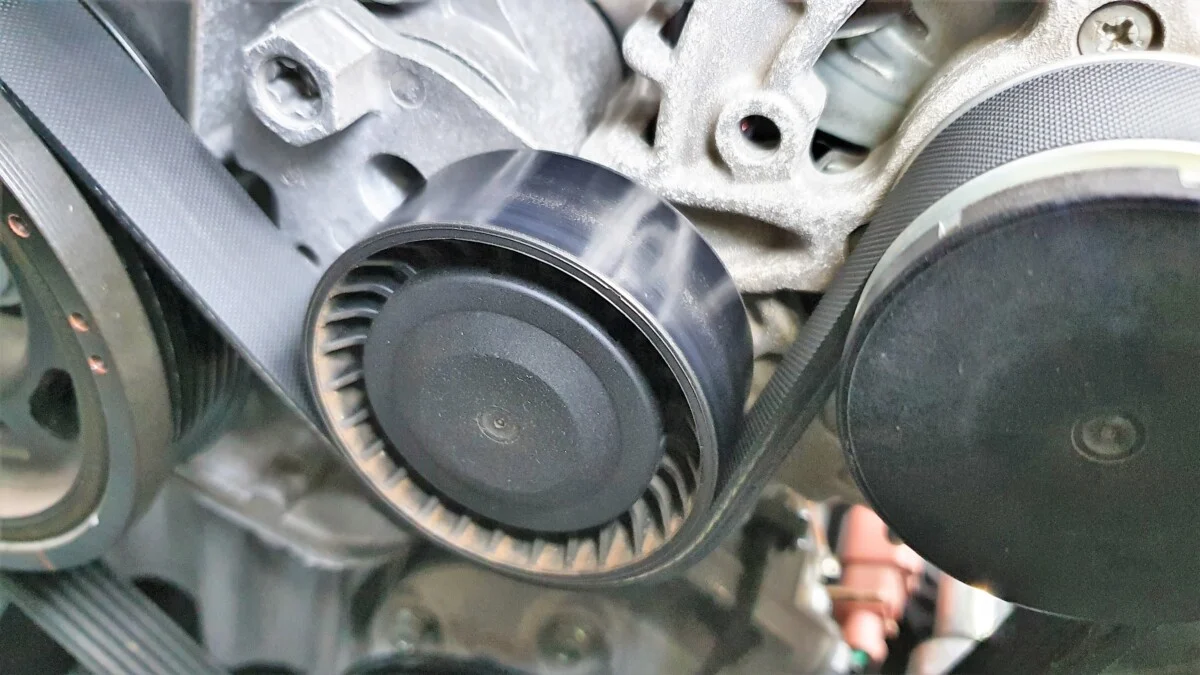
What is the significance of proper alignment and tensioning in car pulley systems?
Proper alignment and tensioning are crucial factors in the functioning and reliability of car pulley systems. The alignment ensures that the pulleys are correctly positioned and oriented, while the tensioning ensures that the belts connecting the pulleys are appropriately tensioned. Here's a detailed explanation of the significance of proper alignment and tensioning in car pulley systems:
- Efficient Power Transmission: Proper alignment of the pulleys ensures that the belts maintain optimal contact with the pulley grooves. This allows for efficient power transmission from the engine to the driven components, such as the alternator, power steering pump, air conditioning compressor, and water pump. Misaligned pulleys can cause belt slippage, reducing power delivery and affecting the performance of these components.
- Prevention of Belt Wear and Damage: Correct alignment and tensioning help prevent excessive belt wear and damage. Misalignment can cause the belts to rub against the pulley edges or sides, leading to accelerated wear, fraying, or even belt failure. Improper tensioning can result in slippage, causing the belts to generate heat, wear unevenly, and potentially snap. Proper alignment and tensioning distribute the load evenly across the belts, minimizing wear and extending their lifespan.
- Reduced Noise and Vibration: Misaligned or improperly tensioned pulleys can result in increased noise and vibration. Misalignment causes the belts to oscillate or vibrate, generating noise and potentially creating an unpleasant driving experience. Proper alignment and tensioning reduce belt vibrations, resulting in smoother and quieter operation of the pulley system.
- Optimal Performance and Efficiency: Proper alignment and tensioning contribute to optimal performance and efficiency of the engine and the driven components. When the pulleys are aligned correctly, the belts operate at their designed angles, maximizing contact area and minimizing energy losses. This improves the overall efficiency of the system and ensures that the driven components receive the necessary power for optimal performance.
- Prevention of Component Damage: Misalignment and improper tensioning can place excessive stress on the pulleys and the driven components. This can lead to premature component failure, such as bearing damage, shaft wear, or seal leaks. Proper alignment and tensioning help distribute the loads evenly, reducing stress on the pulleys and components, and minimizing the risk of damage or failure.
- Enhanced Belt Life: Correct alignment and tensioning contribute to the longevity of the belts. When the pulleys are properly aligned, and the belts are adequately tensioned, the belts experience less stress, wear, and fatigue. This extends the lifespan of the belts, reducing the frequency of belt replacements and associated maintenance costs.
In conclusion, proper alignment and tensioning are essential for the reliable and efficient operation of car pulley systems. They ensure efficient power transmission, prevent belt wear and damage, reduce noise and vibration, optimize performance and efficiency, prevent component damage, and enhance the lifespan of the belts. Regular inspections and adjustments should be performed to maintain proper alignment and tensioning, ensuring the longevity and reliable functioning of the pulley system and its associated components.
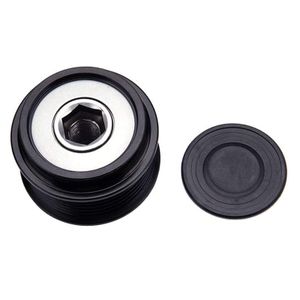
What are the advantages of using high-quality pulleys in car engines?
Using high-quality pulleys in car engines offers several advantages that contribute to the overall performance, reliability, and efficiency of the vehicle. Here are the key benefits of using high-quality pulleys:
- Enhanced Durability: High-quality pulleys are built to withstand the demanding operating conditions within car engines. They are constructed using durable materials and undergo rigorous manufacturing processes, ensuring they can endure high temperatures, vibrations, and mechanical stresses. Improved durability reduces the likelihood of pulley failure, prolongs their lifespan, and minimizes the need for frequent replacements.
- Optimized Power Transmission: High-quality pulleys are designed to provide efficient power transmission from the engine to driven components. They have precise dimensions, well-engineered grooves, and optimal surface finishes that enable proper belt engagement and reduce slippage. Efficient power transmission ensures that the driven components receive the power they require, resulting in improved overall performance and functionality of the engine.
- Reduced Noise and Vibration: High-quality pulleys are carefully balanced and engineered to minimize noise and vibration. They undergo stringent quality control measures to ensure smooth operation and minimize unwanted vibrations that can cause noise and discomfort. Reduced noise and vibration contribute to a quieter and more comfortable driving experience.
- Improved Belt Life: High-quality pulleys help extend the life of belts connected to them. The precise design and smooth surfaces of these pulleys reduce friction and wear on the belts, resulting in increased belt longevity. By minimizing belt wear, high-quality pulleys reduce the risk of belt failure, improve reliability, and decrease maintenance costs associated with belt replacements.
- Precision and Accuracy: High-quality pulleys are manufactured to strict tolerances, ensuring precision and accuracy in their dimensions and performance. This precision helps maintain proper belt alignment, tension, and synchronization. Precise pulleys ensure that the belts operate optimally, preventing misalignment, slippage, or timing errors, which can negatively impact engine performance and potentially cause damage to components.
- Efficient System Operation: The use of high-quality pulleys promotes efficient operation of various engine systems and accessories. By providing reliable power transmission and proper belt engagement, these pulleys contribute to the effective functioning of systems such as the alternator, power steering, air conditioning, and water pump. Efficient system operation enhances overall vehicle performance, fuel efficiency, and driver satisfaction.
In summary, high-quality pulleys in car engines offer advantages such as enhanced durability, optimized power transmission, reduced noise and vibration, improved belt life, precision and accuracy, and efficient system operation. Investing in high-quality pulleys ensures the long-term reliability, performance, and efficiency of the engine and contributes to a smoother and more enjoyable driving experience.


editor by CX
2023-12-18
